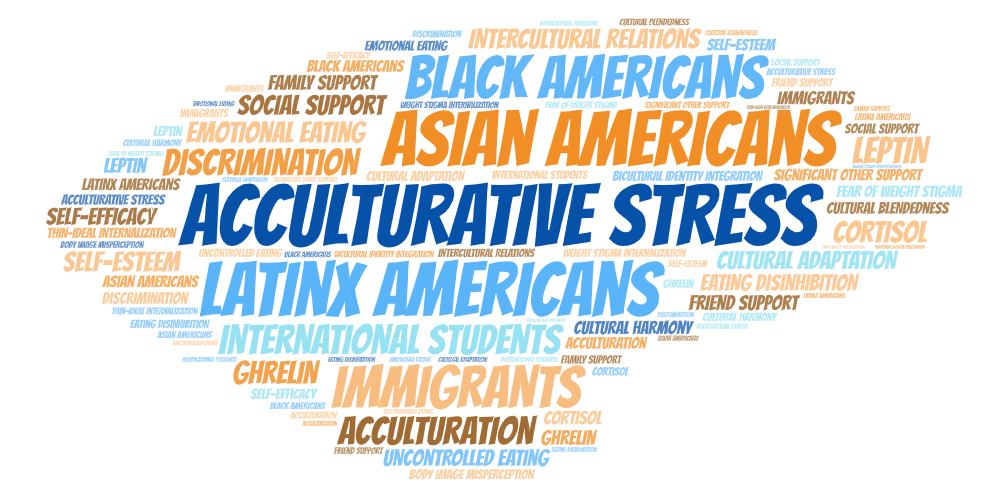The Influence of Culture on Disordered Eating Behaviors among Culturally Diverse Young Adults
Principle Investigator: Peiyi Wang
The current disordered eating behaviors (DEB) risk factor models have not systematically considered culturally relevant etiological factors and integrated cultural contexts.
Despite the observation that individuals from cultural minority backgrounds may experience greater sociocultural risk factors for DEB, the predictive value of DEB risk factors based on culture might be more nuanced.
The overarching aims of this research program are to investigate:
- The unique psychosocial experiences of cultural minority individuals that are relevant to DEB;
- How currently-known DEB risk factors function differently or similarly across cultures;
- The underlying protective factors between DEB risk factors and DEB, particularly among cultural minority groups.
Publications on this topic:
, , , & (2023). Does perceived support moderate the link between acculturative stress and problematic eating behaviors? The role of family, significant other, and friend support. International Journal of Eating Disorders, 56(6), 1075–1086. https://doi.org/10.1002/eat.23941
- The moderating role of perceived social support was examined in the relationship between acculturative stress and problematic eating behaviors.
- Perceived support from family and significant others strengthened the link between higher acculturative stress and increased problematic eating behaviors. In contrast, support from friends is directly related to reduced uncontrolled eating
Wang, P., Garcia, E. R., & Yim, I. S. (2022). Acculturative stress and eating disinhibition among Asian young adults: The role of depressive symptoms and gender. Appetite, 169, 105826. https://doi.org/10.1016/j.appet.2021.105826
- Acculturative stress resulting from intercultural relations is associated with eating disinhibition in Asian college students.
- Individuals’ sex and cultural orientations also impact this relationship, such that, among male students, depressive symptoms partially mediate the relationship, and, among female students, heritage acculturation acts as a buffer.
- The current findings have important implications for counseling services and health interventions related to eating disinhibition among Asian college students.
Selective presentation on this topic:
Wang, P., Garcia, E. R., & Yim, I. S. (2020). Acculturative stress and emotional eating among Asian college students: The mediating role of depressive symptoms. Psychosomatic Medicine, 82(6), A87.

Currently recruiting undergraduate RAs.
Please email peiyi.wang@uci.edu directly or fill out the apply form if you are interested in working as a RA on this program of research. Requirements can be found in the Apply! page.

